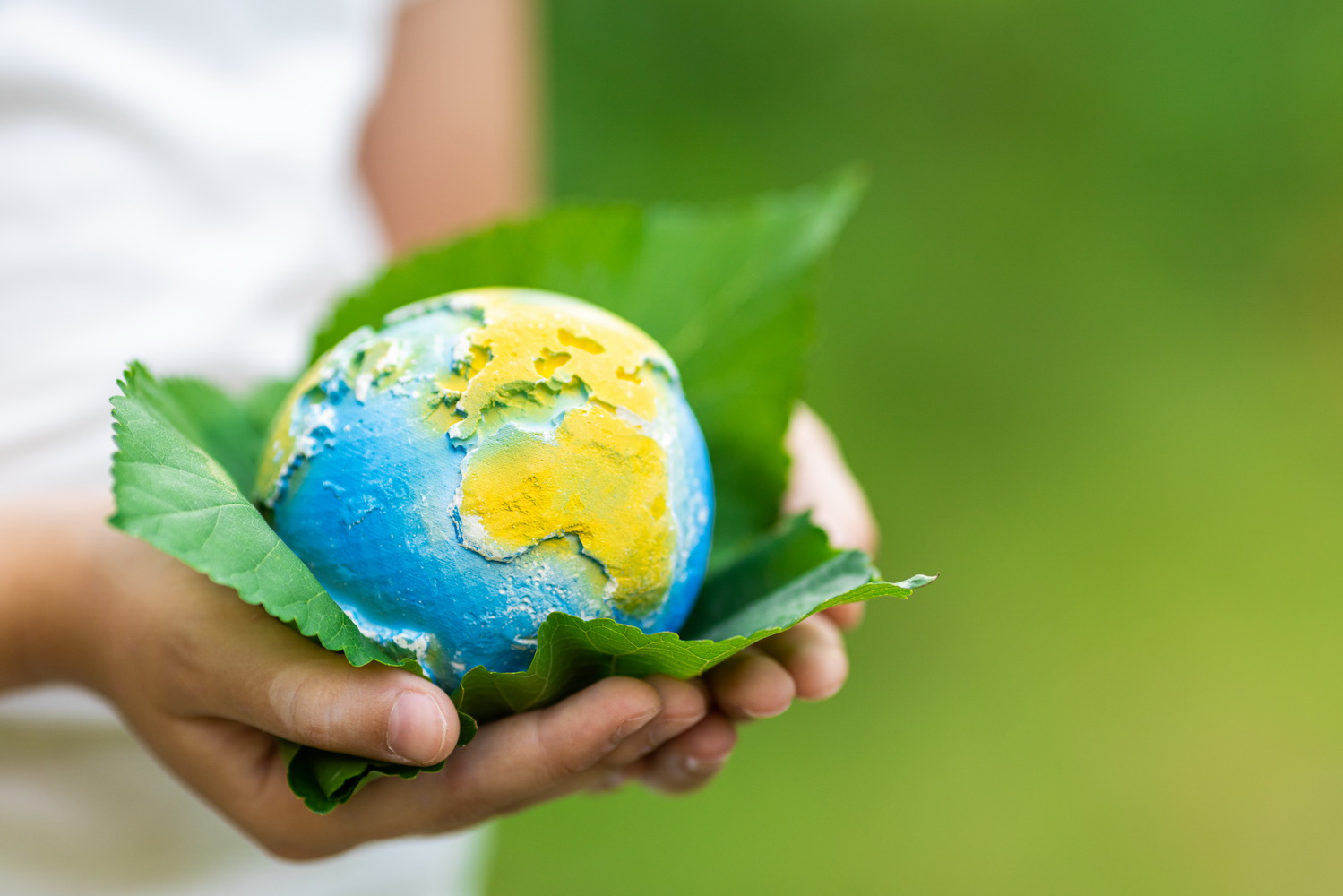Vocabulary expansion Our Planet and Environment Worksheets for Ages 7-9
6 filtered results
-
From - To
Explore our "Vocabulary Expansion: Our Planet and Environment" worksheets, designed specifically for children aged 7-9. These engaging resources focus on enhancing vocabulary related to the Earth's ecosystems, climate, and environmental awareness. Fun activities encourage young learners to comprehend and communicate critical concepts about our planet. Each worksheet fosters creativity and critical thinking, making learning enjoyable and effective. Ideal for classroom or home use, these materials empower students to develop a strong eco-friendly lexicon. Equip your child with essential vocabulary skills that inspire a love for science and a deeper understanding of our environment. Download today and watch their knowledge thrive!
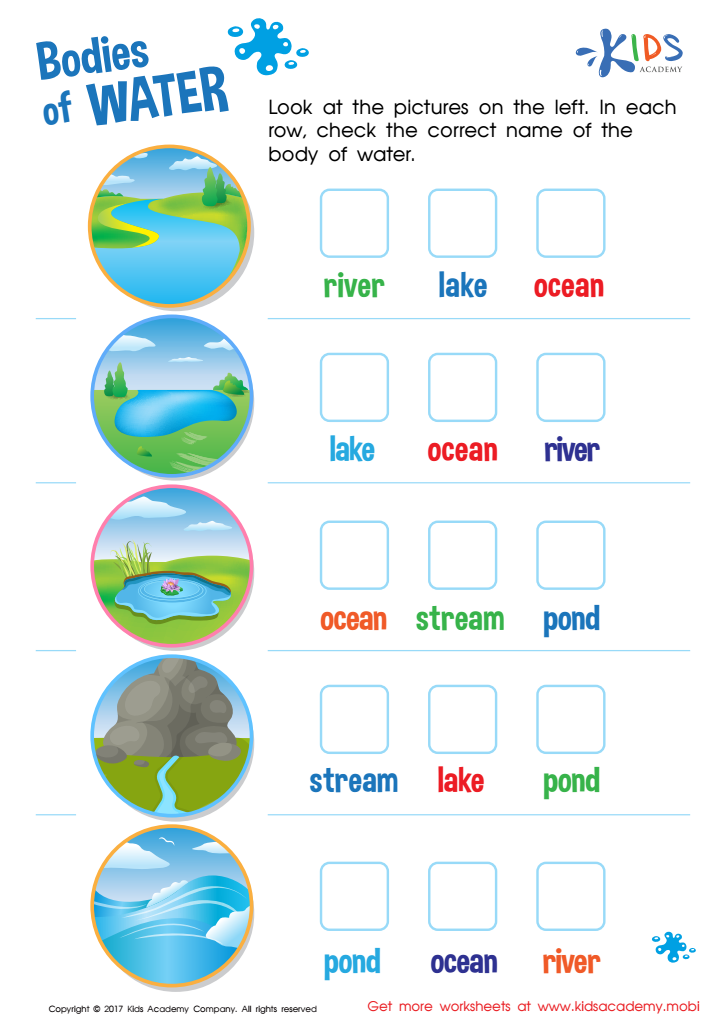

Bodies of Water Worksheet
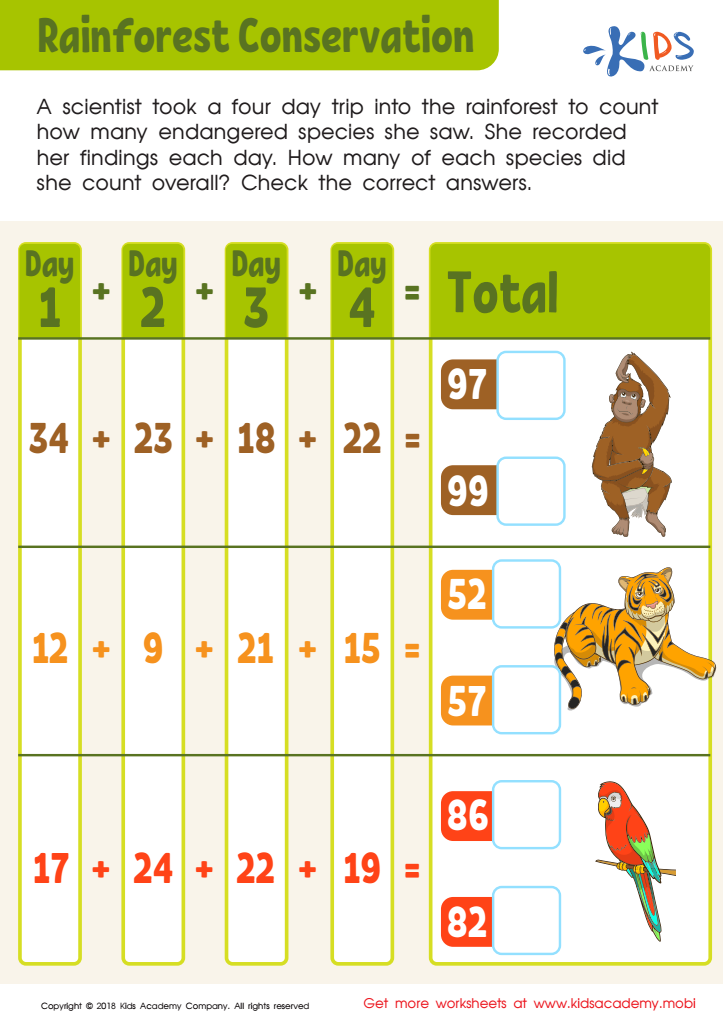

Rainforest Conservation Worksheet
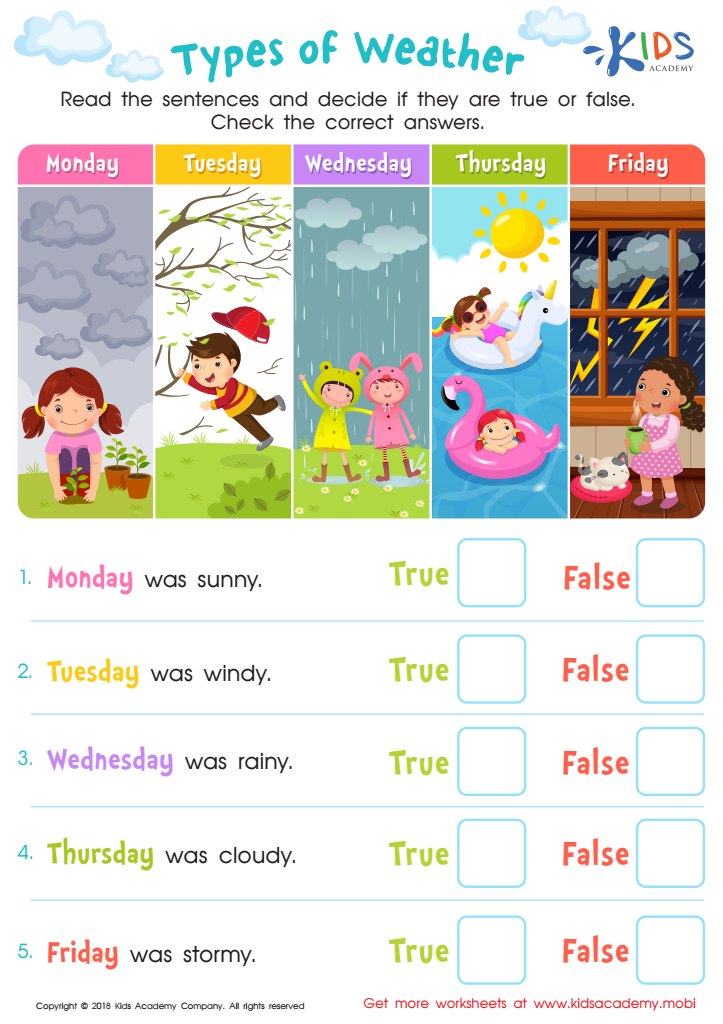

Types of Weather Worksheet
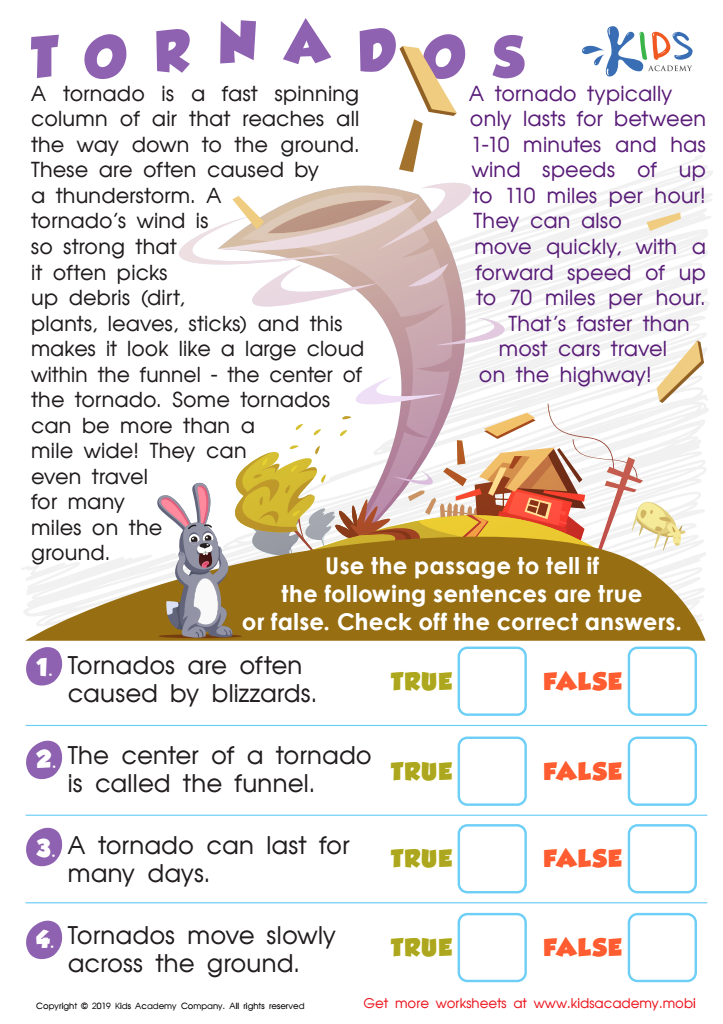

Tornados Worksheet
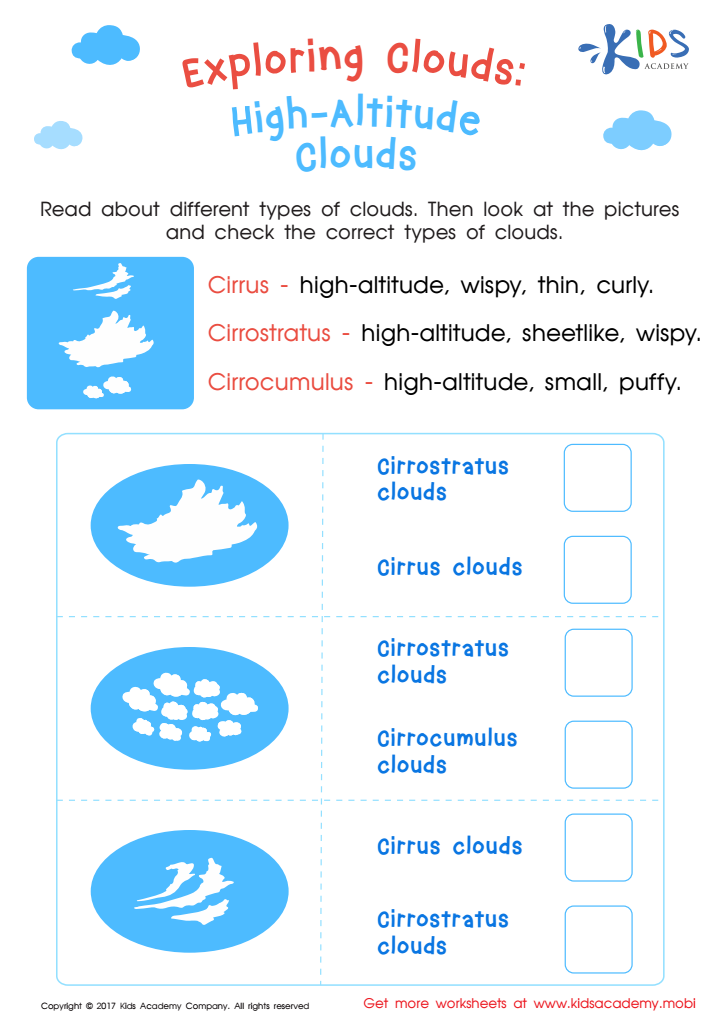

Exploring Clouds: High Altitude Clouds Worksheet
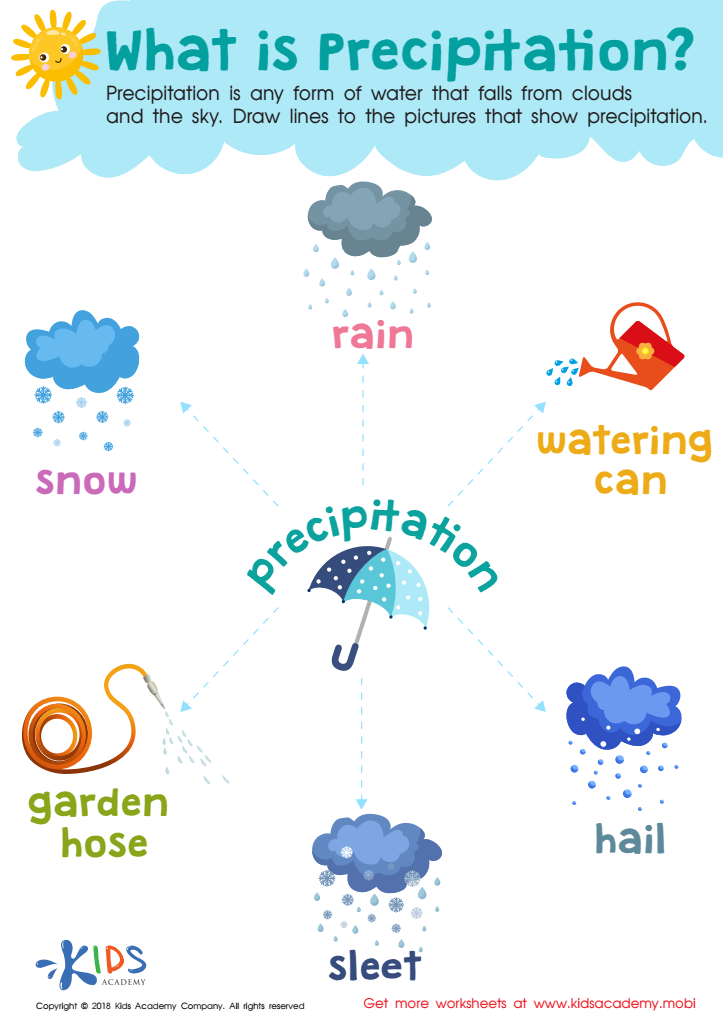

What Is Precipitation? Worksheet
Vocabulary expansion regarding "Our Planet and Environment" is crucial for children aged 7-9 as it lays the groundwork for understanding complex concepts related to ecology and sustainability. At this developmental stage, children are naturally curious about the world around them, and a robust vocabulary empowers them to express their thoughts, ask questions, and engage in discussions about environmental issues.
By introducing specific terms related to our planet—such as “ecosystem,” “biodiversity,” “climate change,” and “renewable resources”—parents and teachers can enhance children's comprehension of environmental science. This understanding is particularly important as youth become increasingly aware of global challenges and the need for collective action.
Furthermore, a strong command of vocabulary helps cultivate critical thinking and encourages children to make informed choices in their daily lives. When children can articulate their concerns about the environment, they are more likely to participate in community actions and advocate for sustainable practices.
For teachers and parents, fostering vocabulary related to the environment not only supports academic success but also nurtures responsible and engaged future citizens who will take ownership of their role in preserving the planet. This investment in their vocabulary equips them with knowledge to understand and confront the pressing environmental challenges of their time.

 Assign to My Students
Assign to My Students










